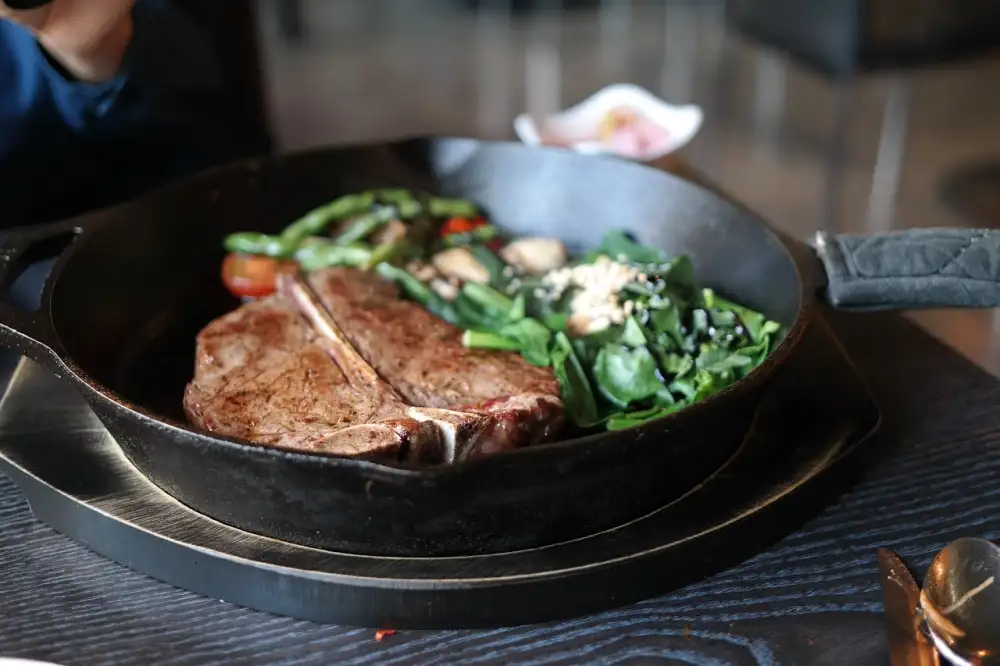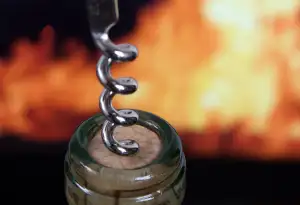Revive Your Cast Iron Skillet: The Ultimate Guide to Cleaning and Restoring

Cleaning a cast iron skillet is an essential step in maintaining its longevity and ensuring optimal cooking performance. A well-seasoned skillet can become a treasured kitchen heirloom, but neglecting proper cleaning can lead to rust, build-up, and even a decline in flavor. By following the right techniques, you can revive your cast iron skillet and continue enjoying its exceptional cooking abilities for years to come. In this guide, we will explore the necessary steps to clean and restore your cast iron skillet, preserving its rich culinary heritage.
Gather necessary supplies for cleaning
To effectively clean and restore your cast iron skillet, it is important to gather the necessary supplies beforehand. Here are the items you will need:
1. Coarse salt or baking soda: These abrasive substances will help remove any stuck-on food particles without damaging the skillet's surface.
2. Soft-bristle brush or sponge: Use a brush or sponge with soft bristles to scrub away dirt and grime gently.
3. Mild dish soap: While some purists prefer not to use soap, a mild dish soap can be used sparingly for extra cleaning power.
4. Paper towels or clean cloth: These will come in handy for drying the skillet after cleaning.
5. Vegetable oil or shortening: To season the skillet after cleaning, you'll need a high-smoke-point oil like vegetable oil or shortening.
By gathering these supplies ahead of time, you'll be well-prepared to tackle the task of cleaning and restoring your cast iron skillet effectively.
Preparing the skillet for cleaning
Before you begin cleaning your cast iron skillet, it's important to properly prepare it. Start by removing any leftover food particles or debris from the skillet. You can use a stiff brush or a plastic scraper to gently scrape off any stuck-on residue. Be careful not to use any harsh abrasives that could damage the seasoning of the skillet.
Next, rinse the skillet with warm water to remove any loose dirt or grime. Avoid using soap at this stage as it can strip away the seasoning. If there are stubborn stains or burnt-on food, you can create a paste using coarse salt and water and gently scrub the affected areas.
Once you have rinsed off all the dirt, pat the skillet dry with a clean towel. It's important to thoroughly dry the skillet to prevent rusting. You can also place it on low heat on your stovetop for a few minutes to ensure complete drying.
Now that your cast iron skillet is prepared, you're ready to move on to the next step: cleaning it using gentle methods.
Cleaning the cast iron skillet using gentle methods
Cleaning the cast iron skillet using gentle methods is crucial to avoid damaging the seasoning. Start by rinsing the skillet with hot water, avoiding soap which can strip away the seasoning. Use a soft sponge or brush to gently scrub away any food residue. For tougher stains, create a paste of coarse salt and water and scrub it onto the surface. Rinse thoroughly and dry immediately to prevent rusting. Remember, gentle cleaning will preserve the skillet's natural non-stick properties for years to come.
Removing stubborn stains or rust from the skillet
Removing stubborn stains or rust from your cast iron skillet can be a daunting task, but with the right techniques, it is possible to restore its original shine. Start by scrubbing the affected areas with a mixture of coarse salt and vegetable oil using a soft brush or sponge. For tougher stains, create a paste using equal parts baking soda and water, and gently rub it onto the surface. Allow the paste to sit for a few minutes before rinsing it off. If rust persists, use steel wool or a wire brush to remove it, being careful not to damage the skillet's seasoning. Remember to always dry the skillet thoroughly after cleaning to prevent further rusting.
Drying and seasoning the skillet after cleaning
After cleaning your cast iron skillet, it is crucial to dry it thoroughly to prevent any moisture from causing rust. Start by using a clean towel or paper towels to remove any excess water. Next, place the skillet on a stove burner set to low heat for a few minutes to evaporate any remaining moisture.
Once the skillet is completely dry, it's time to season it. Seasoning involves applying a thin layer of oil to the surface of the skillet to create a protective barrier against rust and enhance its non-stick properties.
To season your skillet, apply a small amount of cooking oil or solid fat (such as vegetable oil or shortening) all over the inside and outside surfaces. Use a paper towel or cloth to spread the oil evenly, making sure to cover every inch of the skillet.
Next, preheat your oven to 350°F (175°C). Place a sheet of aluminum foil on the bottom rack of the oven to catch any drips. Then, place your oiled skillet upside down on the top rack of the oven.
Bake the skillet for about one hour, allowing the oil to penetrate and bond with the iron surface. This process will help build up layers of seasoning over time, resulting in a smooth and non-stick cooking surface.
After an hour, turn off the oven and let the skillet cool completely inside before removing it. Once cooled, wipe off any excess oil with a clean cloth or paper towel.
Remember that seasoning is an ongoing process that improves with each use. The more you cook with your cast iron skillet, the better seasoned it becomes. So don't be afraid to use it regularly and enjoy all its benefits!
Storing the cast iron skillet properly
Storing the cast iron skillet properly is crucial to maintain its quality and prevent rusting. After cleaning and drying the skillet, make sure it is completely cool before storing. Avoid stacking other cookware on top of it, as this can cause scratches or damage. To prevent moisture buildup, place a paper towel or cloth inside the skillet to absorb any excess moisture. Store in a cool, dry place with good ventilation. Proper storage will ensure that your cast iron skillet remains in great condition for years to come.
In conclusion, maintaining a clean cast iron skillet is essential for both its longevity and the quality of your cooking. By regularly cleaning and seasoning your skillet, you can prevent rusting, remove food residues, and ensure optimal heat distribution. A well-maintained skillet will not only enhance the flavors of your dishes but also provide a non-stick surface for effortless cooking. So, don't neglect the care of your cast iron skillet - it's the key to unlocking delicious meals for years to come!
Published: 09. 12. 2023
Category: Home



